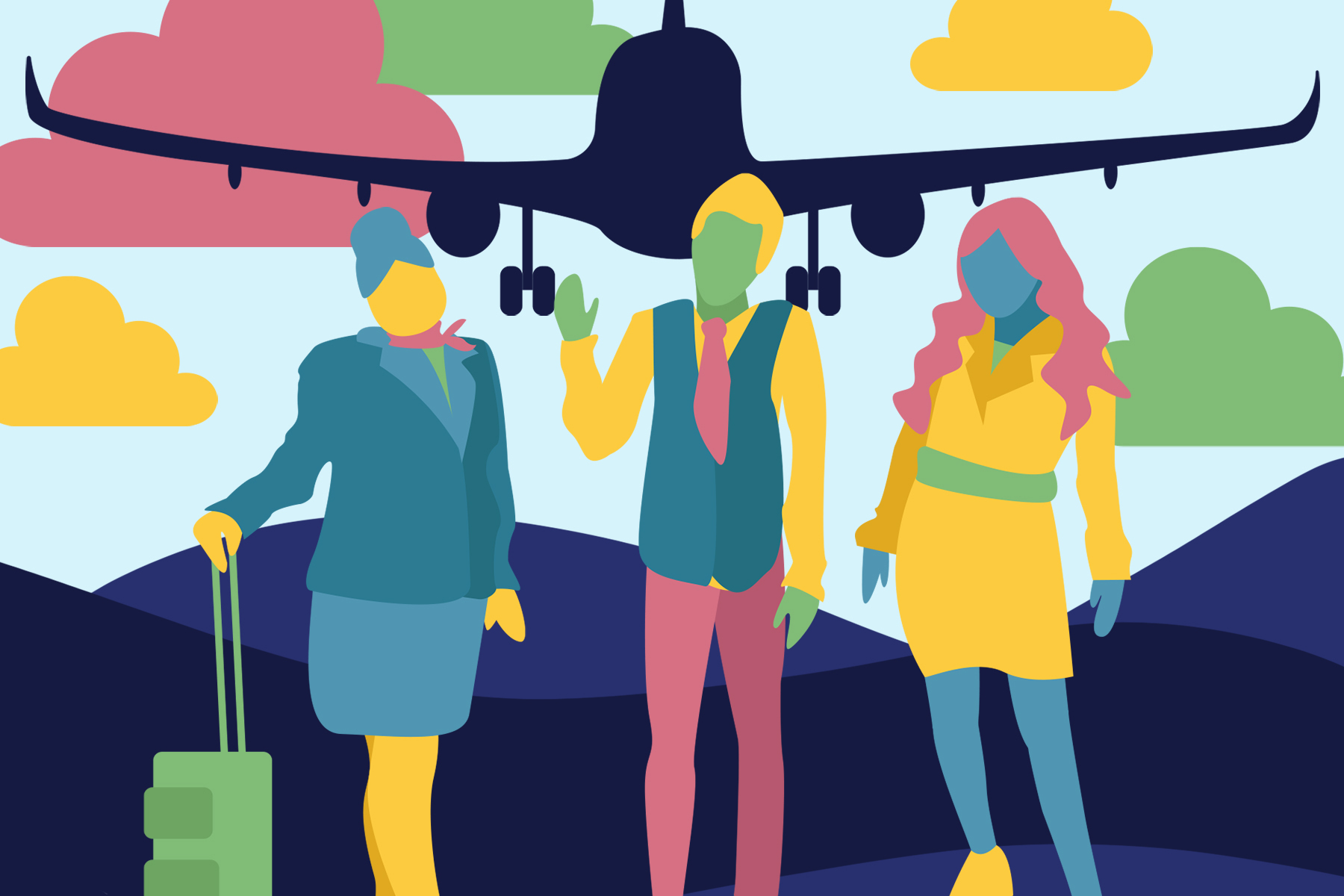When it comes to professions, there are few that capture the imagination of the public like pilots. Soaring the skies is something many children and adults look up to, both literally and figuratively. There’s a certain romanticization that seems inherent when seeing those who drive the buses of the sky.
However, the reality is much more nuanced. Being a commercial airline pilot combines countless services, from hospitality to technical mastery, into one single day job. It is simultaneously what the average passenger perceives while being a drastically misunderstood position.
While the position itself is challenging enough, the world of commercial airlines as a whole is just as difficult to navigate. Like working within any major industry, the distinct attributes of working for your average American Airlines or Delta-owned company present a framework to jump through and goals to strive for. The biggest difference, though, is that this industry faces far more unique challenges than your average earthbound pharmaceutical or textile factories.
“Lives in Our Hands”
When talking to pilots, the biggest job-related thing brought up time and time again is safety. While most people recognize that flying a 45-ton aircraft through the sky is not the safest job in the world, few understand the emphasis that is put on making sure all passengers and crew land soundly at their destination.
“You have souls on board that you are responsible for,” one pilot said. “So their lives are on your hands.”
Accompanying the emphasis on safety is a multitude of lists and procedures that have to be completed any time a pilot prepares for a flight. Showtime for a flight is oftentimes one to two hours before the gate closes, and nearly all of that time is spent meticulously going through checklists and dispatches, ensuring that everything is in place for a safe flight.
Some may see pilots as somewhat easygoing and carefree, but these safety policies actually breed the exact opposite personalities. Commercial pilots pride themselves on their professionalism, all tying back to the heavy responsibility of their passengers’ lives on their shoulders. While some other crew members, such as flight attendants, can occasionally bend the rules in the name of an easier flight, pilots don’t have that luxury.
“The pilots are much more strict on that,” the pilot said. “That’s because if we break rules somebody’s going to die.”
A Strict Hierarchy
The airline industry operates within a strict hierarchy, almost solely based on seniority. While this system may deviate slightly depending on the company employing the pilot, it is almost universally applied.
This usually takes the form of a ranking system, in which pilots, and even other positions, are put at the bottom of the list upon being hired. A pilot can up their ranking by sticking around long enough, but cannot outrank those above them without other pilots moving to a different airline.
“Everything is heavily based on the ranking system,” one pilot said. “The guy right ahead of me, unless he goes to a different airline, will always be ahead of me.”
Your rank determines myriad things. One of the most important of these is your prioritization within the bidding system — which determines who gets the best flights and routes. This works in a similar way to asking for certain shifts at a retail or culinary job, but in a much more controlled and concrete manner. The senior pilots will always have the best pickings.
Better flights, pay and overall quality of life are directly tied to how long you stay at a given airline. “The longer you stick around … the better quality of life you’re gonna have,” the pilot said.
A lot of this strict conformity to the established system is enforced by the unions that heavily influence the industry. The ultimate goal of these organizations, such as the Airline Pilots Association and the International Federation of Airline Pilots, is to ensure fair treatment of every pilot working for a commercial airline.
“The unions are very powerful,” the pilot said. “They’re looking out for the best interest of the union employees.”
Pilots’ Supporting Cast
Like with any profession, the act of flying an airplane is made possible by the work of the dozens of different positions around it. Ground crews, maintenance crews, air traffic controllers, dispatchers and flight attendants are just a small portion of the necessary crew members that make commercial air travel possible.
What makes working in an airline different, though, is that your crew is constantly changing. Unlike working at a factory or corporate job in which you have a stable team that you work with every day, airline crews are made up of different faces on nearly every flight.
“It’s pretty consistently all different people,” a pilot said. “There’s a lot of times where you may go a whole year and only repeat a flight with someone like once or twice.”
Once again, this constantly shifting dynamic forces airline crews, whether that be pilots or flight attendants, to rely on corporate and industry procedures to ensure quality safety and service every time.
How these short-term crews interact with each other depends on the personalities present. Some crews will go out to dinner and socialize upon landing at their destination, while others, nicknamed “slam clickers,” instead choose to retreat to their hotel rooms immediately.
The company a crew is flying for also has a huge impact on the dynamic. Some airlines promote having a more cohesive and “fun” relationship between its crew members, while others prefer their employees to keep it strictly professional.
“Each airline has a different flavor,” a pilot said. “You may have a younger, more fun crew at one airline, and more of an older, less fun one at another.”
A Unique Industry
The airline industry is wholly unique in its operations, at least compared to other customer service industries.
The pilots flying you to LAX are not the movie clichés you envision, but instead are a group of highly professional and safety-driven technicians. They work within the boundaries of a rigidly structured company and are constantly adapting to new crews and regulations to deliver the best service to you.
While the pilot life may not be as lofty as some make it out to be, it is nonetheless a profession like no other.

















